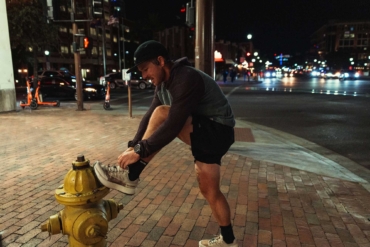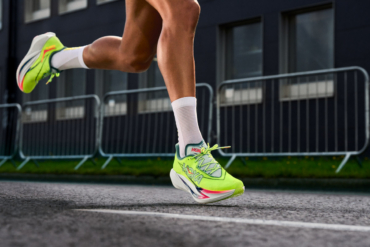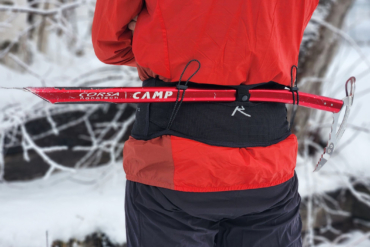
Preface: We met Doug Masiuk last summer when our contributing editor Sean McCoy hosted the cross-country runner in his Colorado home for a night. A friend of a friend, McCoy quickly came to admire Masiuk and his mission of promoting fitness and diabetes awareness on a ragtag, run-across-the-USA mission called 1Run. Last month, on a stretch of beach in New York, Masiuk completed his journey, stepping into the ocean surf after running almost daily for 7 months straight. He is the first person with type-1 diabetes to do so. But beyond just the physical feat, Masiuk made more than 100 presentations and influenced untold thousands of people along the way. Congrats, Doug! You earned this Epic Award in more ways than one.
By STEPHEN REGENOLD
Golden Gate Park. San Francisco. Doug Masiuk is looking east, the start of a life-changing journey stretching unfathomably ahead.
He laces his shoes. Takes a drink, and he starts to run. He gets up to a pace, a familiar rhythm after training for months.
But then the naked people emerge and begin coming toward him down a street.
It was May 20, 2012, day one of a cross-country journey Masiuk had dubbed 1Run. By accident or fate he’d timed 1Run to begin with an annual, hippy-influenced event called “Bay to Breakers,” where clothing is optional but energy runs high.
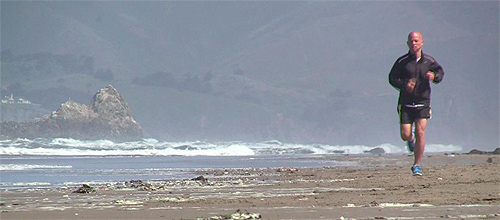
“Not how I pictured my run to begin,” Masiuk said. “But by accident tens of thousands of people, many of them naked, were with me on the very first day of the trip.”
He ran through the city, hordes cheering, cars honking. Up and over the San Fran hills. Through “deep canyons of streets clogged with people,” as he put it, and then across a bridge to escape downtown and the naked people, running 17 miles that first day to a stop, finally, after dark on the outskirts of the sprawling city.
Masiuk had 3,300+ miles to go. His goal was to complete the run in four months. It took more than seven. “I needed to reach more people, talk to more people, than I had imagined from the start.”
Beyond the raw experience of running across the country, beyond the chuck-it-all baptism of leaving frustration and normal life behind, Masiuk had a vision for what he wanted to do with 1Run: Make people aware of diabetes, and empower people (diabetic or not) to get out and get active.
He departed San Francisco with a sketched route and a vague plan, California to New York with dozens of stops along the way. He had little money, few sponsors. But he had a support car and friends scheduled to run for points at his side.
More importantly: He had motivation to share his story of how running had changed his life.
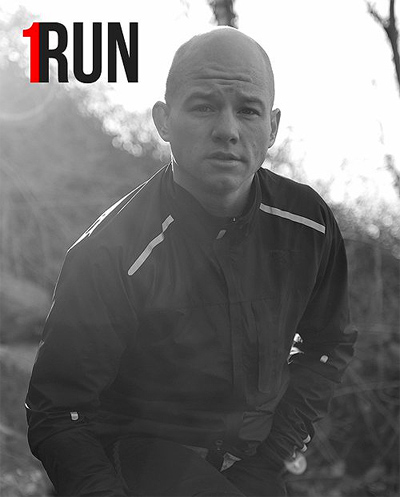
Diagnosed at age 3, diabetes has ruled parts of Masiuk’s daily routine as long as he remembers. Needles and insulin. Watching each meal. Frequent check-ups, and a constant eye on his blood-sugar levels, day in and out since he was so small.
He is blunt about it: “I have a failed organ, my pancreas is dead, broken, gone,” he told me on the phone.
Diabetics have shorter life expectancies. Many are overweight and ruled by their condition, a constant battle to balance food, blood sugar, physical activities, and then just normal life on top of it all.
A couple years ago, Masiuk hit a low point. In his early 30s, working 70 hours a week in IT consulting, his fitness slumped so low that he puked when he tried to run. His aunt, a woman close to him his whole life, died in her early 50s sitting at her desk.
Something sparked. Masiuk was crushed. “My life was upside-down,” he said.
He flipped it back. He quit his job. He started to run. “I was trying to outrun my diabetes,” he said.
Physical fitness cannot cure diabetes. But a healthy body and a good diet can make the condition more manageable. Masiuk saw changes within weeks after starting a running routine.
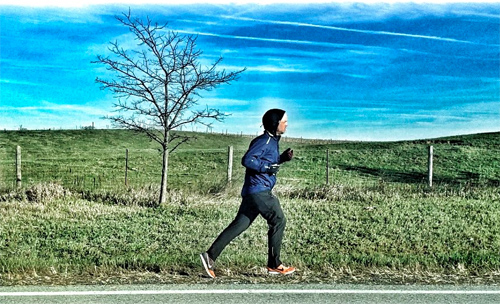
In medical terms, his long-term HA1C test now measures at a 6. In the past it was an 8. His system now requires only a quarter of the insulin it used to need.
Masiuk said a new diabetic sensor device from Dexcom Inc., called the G4, was critical to helping him keep his blood in check throughout the physical demands of his running routine. “It is a sensor that is set into my skin and sends wireless data to a handheld device that reads my blood sugar,” he explained.
1Run was born as a concept when he realized he needed to share the changes he was seeing, the new life that was emerging for him as a diabetic and a human being. An evangelist for fitness and running, he hatched the idea to run 20 or more miles a day, Pacific to Atlantic Ocean, making stops at hospitals and community centers along the way.
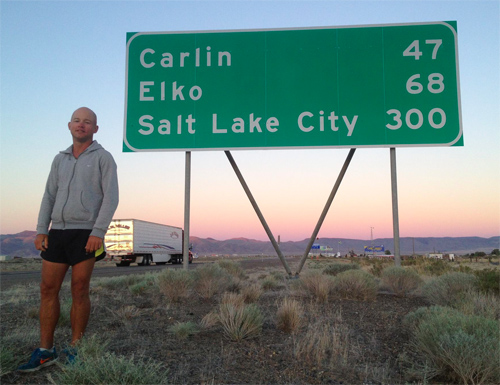
It took a year of planning. He left Maryland, his home, and went west until he ran out of land. Then 1Run started, and Masiuk’s life would never be the same.
It was day two of the journey. San Francisco faded into his rearview. The naked people put their clothes back on, went back to normal life. Masiuk ran into the hills east of Oakland.
He slept a second night, laced up his Nikes again, and then he looked at a map leading toward Lake Tahoe.
And so started the long haul. The routine. Salt flats and mountain passes were ahead. Heat to 120 degrees. Rain. Old desert tracks and busy highways. Then a blizzard later in the run. He’d burn through 14 pair of Nikes before he was done.
But more memorable than the adventures, Masiuk said, were the people he met along the way. The lives that influenced him, and the attempts he made to influence others.
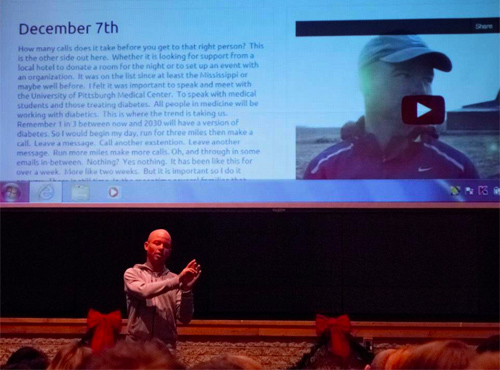
100+ presentations. In hospitals, town halls, clubs, schools. He set a table outside a grocery store in more than one tiny town. “We wanted to reach as many people as possible.”
continued on next page. . .

